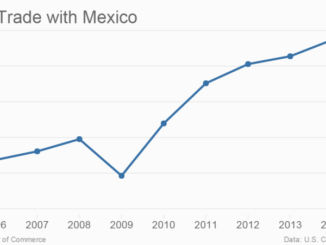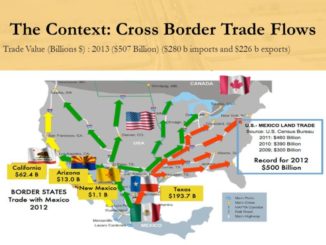
Central America faces numerous challenges, but we should continue to partner with the region as leaders find solutions for long-term growth.
by
The heartbreaking images of desperate children and families from Central America fleeing violent crime and risking their lives to enter the United States have produced an unsatisfying debate among Americans. The left wrings its hands about how the whole situation is our fault and we have to fix it, while the right harrumphs that they made their bed and they should lie in it.
The complicated truth
As usual, the truth is more complicated than either side would like to believe. The good news is that the United States is not alone in wrestling with this problem; in fact, we have reasonably effective partners in the Central Americans themselves to address it.
All of the Central American countries have been sovereign nations for two centuries, and all have had functioning democracies with market-driven economies for three decades or more. As a result, they bear ultimate responsibility for social, political, and economic conditions in their countries.
At the same time, the United States has been deeply engaged in those countries for decades. The first trip outside the United States by a sitting American president was to Panama in 1906, when Theodore Roosevelt went to inspect the construction of the Canal. We used development assistance to coax the Central Americans away from communism in the 1960s. We fought proxy wars against Cuba and the Soviet Union there in the 1970s and 1980s. We used development assistance again to encourage full implementation of post-conflict reconciliation in the 1990s. And we used the prospect of access to the U.S. market to encourage an embrace of free trade in the 2000s.
The region’s embrace of free trade is especially important. The core premise of U.S. trade policy since the Reagan administration has been that trade, including freer trade among developing countries, is a better tool for economic development than aid. The Dominican Republic-Central America Free Trade Agreement, known as CAFTA, negotiated by President George W. Bush’s administration, is the most fully developed effort by the U.S. to put this idea into practice.
The region’s embrace of free trade is especially important. The core premise of U.S. trade policy since the Reagan administration has been that trade, including freer trade among developing countries, is a better tool for economic development than aid.
All the partner countries have worked hard to reform their economies in order to fully implement the agreement. But their continued poverty challenges the wisdom of the American approach. We must prove that it works.
Over the years, we also have given safe harbor to millions of Central Americans fleeing civil war and natural disasters. Those people in most cases worked hard, obeyed the law, and became members of the American community, as immigrants have done in this country for over two centuries. Today, they, their children, and their grandchildren are citizens and taxpayers — and voters who members of Congress must pay attention to.
More recently, we have deported thousands of young men who had served jail time in the U.S. In so doing, we transplanted notorious street gangs like MS-13 from the U.S. to the region, where they have metastasized into a threat to public order.
It doesn’t really matter whether the problems facing the countries of Central America are our “fault” or their “fault.” The fact is that the security of our borders and our communities is at stake in how they are resolved.
It doesn’t really matter whether the problems facing the countries of Central America are our “fault.” The fact is that the security of our borders and our communities is at stake in how they are resolved.
Breaking a vicious cycle with growth driven by practical solutions
The challenges are daunting. The region remains trapped in a cycle of institutional weakness, persistent poverty, and political instability. Crime has risen to intolerable rates due to a vicious cycle of poor educational opportunities, unemployment, family disintegration, and a weak culture of rule of law. Competitiveness has been impacted because of bureaucracy, corruption, and insecurity. This instability on our extended security perimeter drives immigration and reduces growth opportunities for the U.S.
To break this vicious cycle, the U.S. needs the region to develop and pursue a long-term growth agenda that will boost job creation. In turn, that will help drain support for the gangs, stop migration and family disintegration, and renew support for democracy and free markets.
To break this vicious cycle, the U.S. needs the region to develop and pursue a long-term growth agenda that will boost job creation. In turn, that will help drain support for the gangs, stop migration and family disintegration, and renew support for democracy and free markets.
In an effort to encourage the emergence of a growth agenda, the Bush Institute created the Central America Prosperity Project (CAPP) in 2018. At the center of the CAPP approach is a working group that brings together 30 leaders from Guatemala, El Salvador, and Honduras, including leaders who resolved the civil conflicts, leaders who negotiated CAFTA, and emerging young leaders. Half the group are women, and a third are under the age of 35. Participants represent business, policy, politics, academia, journalism, and civil society.
During the group’s initial discussions, it became clear that the region’s overarching challenges are corruption and informality. Corruption covers the gamut from petty bribery in evading traffic fines to tax evasion – all the way to embezzlement in government contracts. Informality refers to businesses that aren’t registered so as to evade taxes and compliance with health and safety regulations, minimum wage requirements, and pubic health payments.
The group agreed that wider use of digital technologies would curtail corruption by making tax and customs fraud almost impossible. Digital technologies also would reduce informality by making compliance with registration requirements easier and less costly.
Drawing on these discussions as well as academic and other sources, the Bush Institute in May 2018 urged the three countries’ governments, private sectors, and civil societies to work together to develop and implement a regional digital strategy that would promote use of mobile services for access to government and financial services across the region. This proposal was welcomed across the region and by the U.S. government, the Inter-American Development Bank, and other stakeholders.
In the remaining months of 2019, we are working with our network to organize a series of workshops in the region to bring financial and telecommunications sector investors together with civil society and policy makers to identify the policy impediments to broader deployment of mobile services and develop national implementation plans. We have been encouraged by the commitment of the region’s governments, particularly the newly-inaugurated Salvadoran government and the team of the Guatemalan president-elect, to make digital development a top policy priority.
Of course, the region’s challenges go well beyond digital services. The value of the proposed digital agenda is not that it addresses every challenge, and certainly not that it can restore social trust and rule of law. But the experience of other countries – South Korea and Kenya, to name two – suggests that it can be effective in reducing corruption and informality. And, perhaps more importantly, it represents a commitment by a broad and influential network of Central American leaders to the hard political work of driving reforms that will strengthen the foundation for future prosperity.
The elements of a successful policy are in place: a practical strategy that makes a down payment on reforms needed to put Central America on a more robust and more inclusive growth trajectory, and a network of Central American partners committed to implementing it. With patient American support, we can be confident of the outcome.



